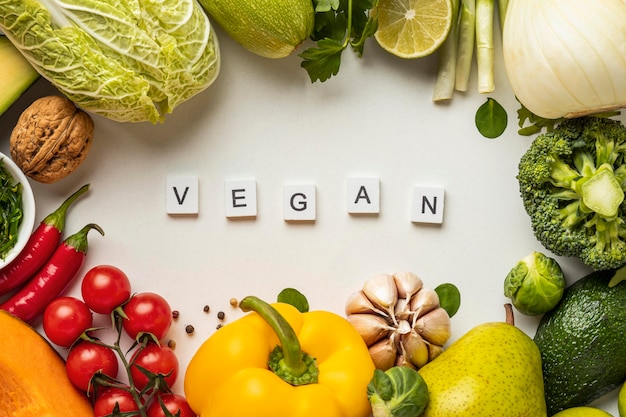
Have you tried Veganuary this year, or are you thinking about transitioning to a vegan diet? If so, Doctor Gemma Newman has some useful suggestions for you.
With numerous diets like low-fat, high-fat, low-carb, high-carb, vegan, paleo, and keto, it’s easy to get confused about which one actually works and is best for you. Veganuary continues to gain momentum, with more people participating every year. In 2018, 170,000 people took the challenge, and the numbers have only increased since then.
Is going vegan a healthy choice? And how does it stand out from other diets that claim to improve our health? There’s a lot of misinformation about nutrition, often spread by media and food companies. However, many agree on the advantages of eating lots of fruits and vegetables, sticking to whole, unprocessed foods, and minimizing or avoiding items like processed meats, sugary snacks and beverages, white flour, and white bread.
Eating fruits and vegetables has undeniable benefits. When people are unsure about what’s healthy, they often follow the “everything in moderation” mantra, but that’s not always sensible. For instance, we don’t suggest smokers smoke in moderation. Similarly, processed meats and sugary drinks should be limited. The World Health Organization lists processed meats as a class 1 carcinogen, meaning they can cause cancer, regardless of moderation.
Dr. David Katz gathered top nutrition scientists worldwide for the True Health Initiative, establishing a consensus that a diet rich in vegetables, fruits, beans, nuts, seeds, whole grains, and water is key to good health. Diets like paleo and whole food plant-based share more in common with each other than with the average Western diet.
Heart disease, our leading cause of death, is linked to diet. The whole food plant-based diet is the only one proven to reverse coronary artery blockages in just weeks. Studies like the Lifestyle Heart Trial and the Mount Abu Heart Trial show impressive results. No other diet has achieved these effects. Given heart disease’s risk, a whole food plant-based diet seems the wisest choice until new evidence suggests otherwise.
Switching from a typical Western diet to a plant-based one can feel daunting. Kudos to those sticking with Veganuary. If you’re starting out, there are cookbooks to guide you like “So Vegan in 5” by Roxy Pope and Ben Pook, which offers simple recipes using just five ingredients, all easily found at your local grocery store.
Another resource is “BOSH!” by Henry Firth & Ian Theasby, featuring over 80 healthy vegan recipes. It’s a popular online channel, amassing views and demonstrating how plant-based meals can be delicious. Searching vegan on Instagram can also lead you to inspiring stories and tips.
For a smooth transition, try adapting your favorite meals. Swap chicken curry for chickpea curry, or beef Bolognese for lentil Bolognese. Start with small changes, like plant-based breakfasts a few times a week, then move to plant-based lunches. Eventually, you can build a repertoire of meals to replace old habits.
Adopting a whole food plant-based diet could show health benefits in just two to three weeks. Initially, as your gut bacteria adjust, you might experience some bloating, but this usually subsides.
The American and British Dietetic Associations affirm that well-planned plant-based diets support health at all life stages and may help prevent illnesses like heart disease and cancer. These diets are linked to a reduced risk of chronic respiratory issues, allergies, and infections in childhood too.
The British Dietetic Association’s Blue Dot Campaign emphasizes the accessibility of plant-based diet advice for everyone, despite nutritional deficiencies due to factors like soil degradation. Western diets often lack vital nutrients like magnesium, folate, and fiber and are linked to obesity and chronic lifestyle diseases. A whole food plant-based diet, however, is nutrient-dense and recommended by Dr. Joel Fuhrman’s nutritarian approach.
If choosing a fully plant-based diet, certain supplements are essential. Vitamin B12, which is vital, should be taken as a supplement since it’s not easily found in plant foods. Adults need about 1.5 micrograms daily, but a higher dose ensures better absorption and prevents deficiency. B12 is found in fortified foods like soy milk and nutritional yeast, but supplements are often necessary.
Vitamin D, recommended at 1000-2000iu daily, and EPA/DHA omega-3 supplements are beneficial too. Flaxseed is another excellent addition, boosting heart health when included in daily meals.
Dr. Gemma Newman, an experienced medical professional, emphasizes the importance of a plant-based diet for better health outcomes, supported by scientific research and expert consensus.